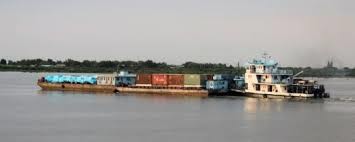The government of Japan and the United Nations Office for Project Services (UNOPS) South Sudan Operations Centre (SSOC) said in a joint statement that they working on a project worth one million USD to determine the potential of a river barge transport system in South Sudan, which could open up new and more cost-efficient avenues for emergency humanitarian aid.
The project funded by the government of Japan and implemented by UNOPS, was officially launched on 1 April 2017 and will run until March 2018.
According to the joint statement dated May 31, the feasibility study will assess the potential of full-scale river barge transport system through conducting surveys of major existing ports along the Nile basin including Juba, Malakal and Melut, as well as assessing environmental impact on the Nile River between Juba and Renk.
“There is grave humanitarian need in South Sudan but road access to key humanitarian hubs is limited. Therefore, we are driven to think not only about what aid to provide, but also how to get aid to reach the most needy via the most efficient method,” said Kiya Masahiko, Ambassador of Japan to South Sudan.
“South Sudan’s waterways, furthermore, have the potential not only as an avenue for aid delivery but also a springboard for the country’s development and prosperity, when peace arrives,” Kiya added.
“We are delighted to have this opportunity to partner with the Government of Japan to explore how we can improve development and humanitarian aid transport in South Sudan,” said then-UNOPS South Sudan Country Director, Paul Cruickshank.
“Compared to air transport at the cost of approximately $2,500 per metric ton, barge transport offers significant savings at an average of $390 per metric ton – thus more resources can be used to assist the people of South Sudan,” he added.




